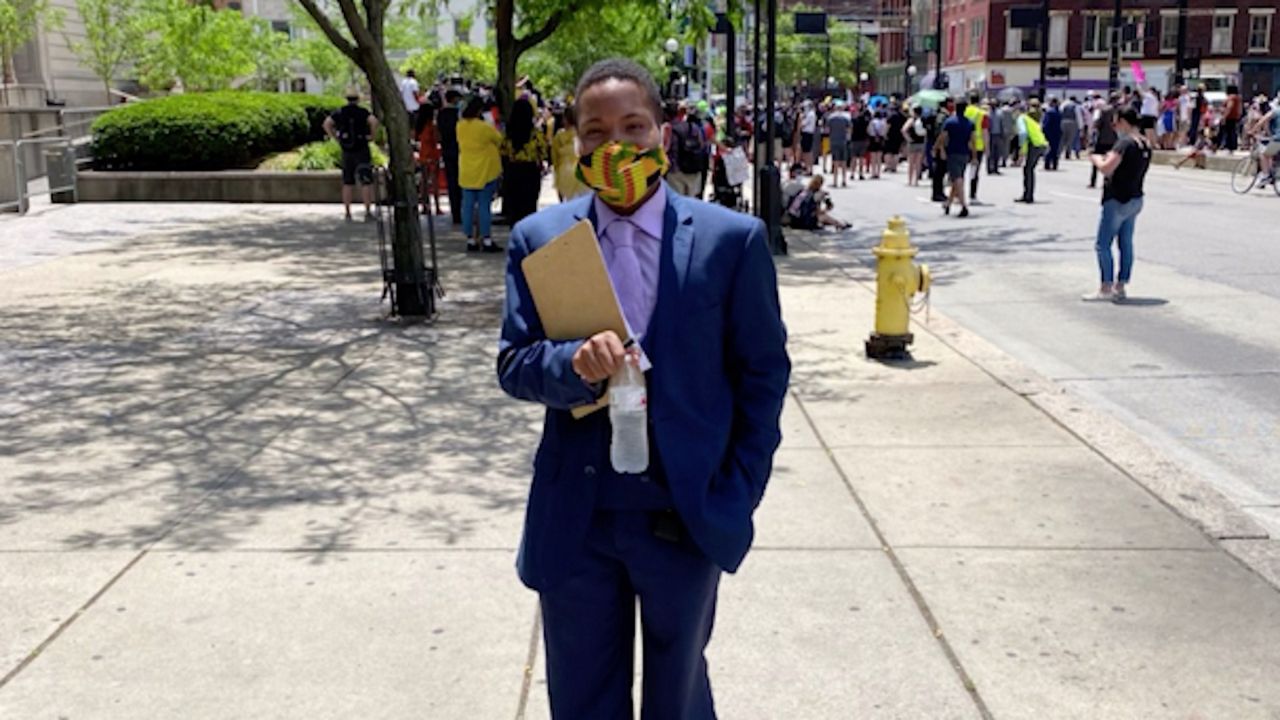CLEVELAND, Ohio — Judge Ronald Adrine started practicing law in the 1970s, sat on the Cleveland Municipal Court bench for 5 terms from 1981 until 2017, and calls himself a student of civil rights. But in all his years, Adrine says he has never seen communities unite to call for justice as they are in this moment.
What You Need To Know
- Elected officials are being called upon to address criminal justice reform in the wake of public protest over the death of George Floyd
- Honorable Ronald Adrine says community activism and protest are not a harm to the judicial system
- Adrine says protest and the resounding call for justice will actually challenge those in power to put biases aside.
“In 1968, you had a lot of people who were rioting because of the death of Martin Luther King, you had a lot of people rioting because of what was happening as it related to the Vietnam War, those were two separate kinds of upheavals. These things that have been happening in the last week, week and a half, have highlighted, really, all of the things that are usually under the surface and that we don't get a chance to focus on and this strikes me as being a very different moment,” said Adrine, who is a retired Cleveland Municipal Court judge.
Adrine says the effects of protest that have erupted around the world following the death of George Floyd will absolutely have an impact the courtroom.
“It’s impossible for you to disconnect the reality on the ground from what happens in the legal setting. Those things are inextricably bound. And for anybody to say that they are able to ignore it is disingenuous at best,” said Adrine.
Adrine received national attention for his ruling in the Cleveland Municipal Court case involving the actions of two Cleveland police officers that resulted in the death of 12-year-old Tamir Rice. He says in that case, community organizers appealed to him directly.
“A group of activists found some lawyers who did some very unique and innovative lawyering. They found a provision in the Ohio Revised Code that allowed for citizens to bring a complaint directly to a judge, asking that a formal criminal complaint be issued against officers. And as fate would have it, their complaint was filed in my court and at the time, I was the administrative presiding judge of the court,” Adrine said.
In that case, Judge Adrine found probable cause that the officers should face criminal charges, though a Cuyahoga County grand jury decided against bringing charges against them.
Adrine says community activism and protests are not a harm to the judicial system and when done right, they can be beneficial for justice and lead to a better, more transparent and fair process.
“People have to feel that they're respected. They have to understand what's going on. They have to feel that the individuals who are in charge of the system are neutral. And lastly and maybe most importantly, people who come into contact with the system have to feel as though they are given the opportunity to have voice,” said Adrine.
Adrine, who was chair of the Ohio Commission on Racial Fairness, says everyone— even politicians, judges and prosecutors—have their own implicit biases. He says protest and the resounding call for justice will actually challenge those in power to put biases aside as they seek to uphold liberty and justice for all.
“This is an opportunity for everybody to step back away from what they do and to engage in an agonizing reappraisal of who they are, what they're about and how they actually see the world, what their world view is as it relates to doing the jobs that they have to do, regardless of whether we're talking about a police officer or we're talking about a prosecuting attorney or we're talking about a judicial officer. We all need to take a look in the mirror and see that we really are trying to do justice,” Adrine said.










